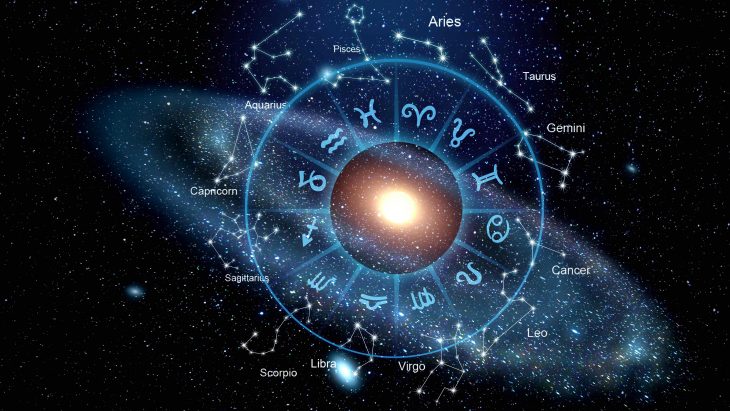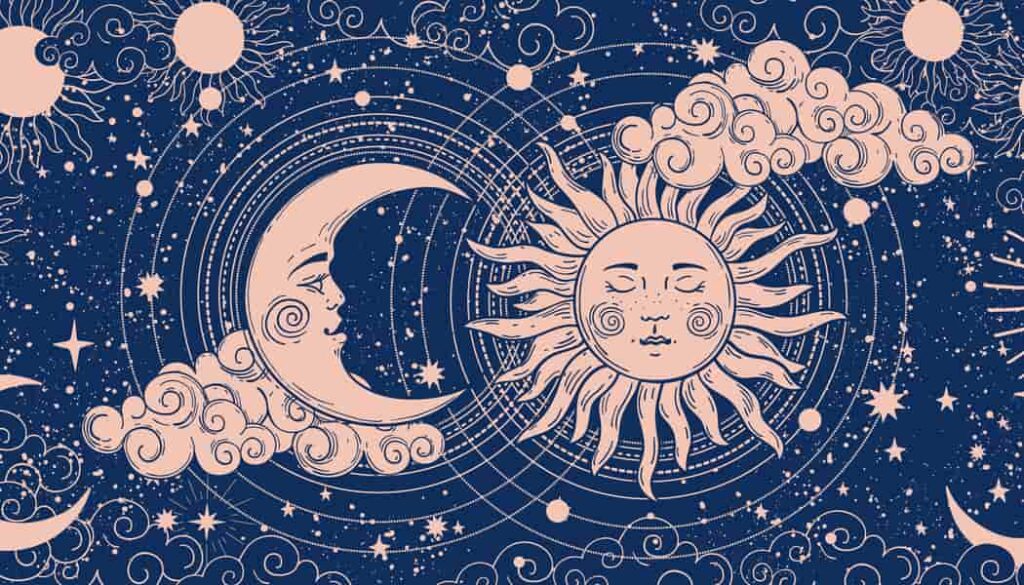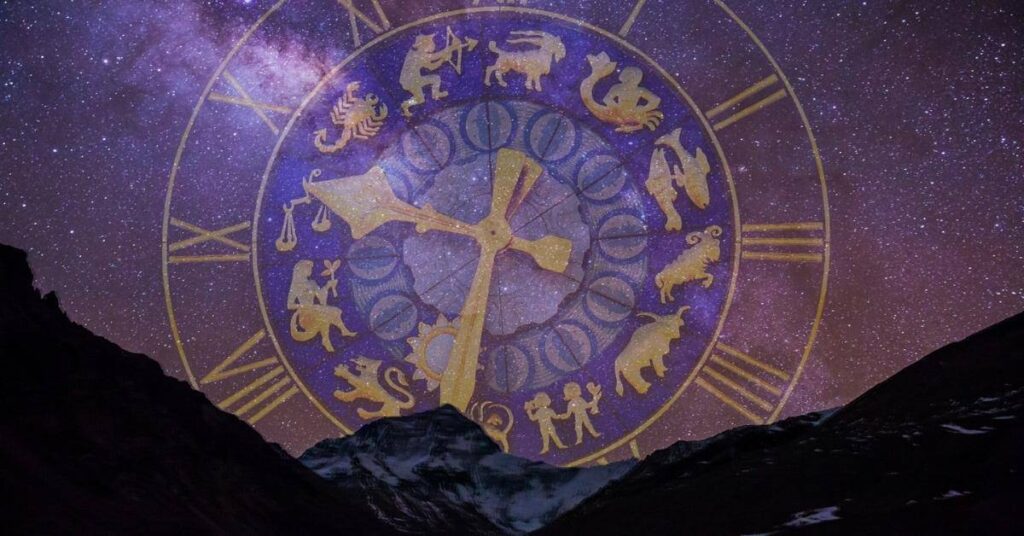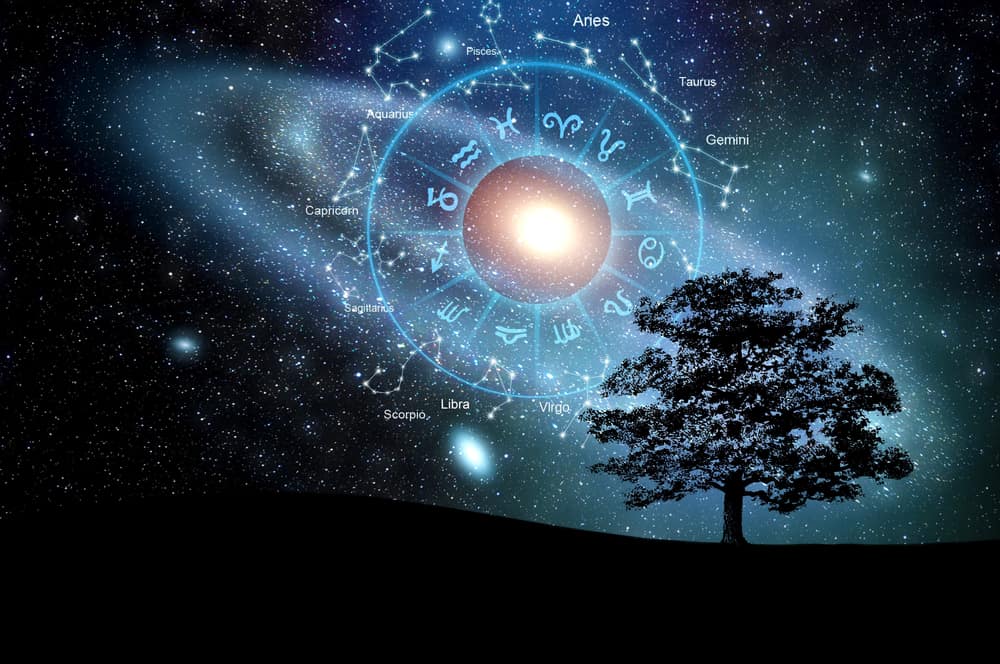Astronomy and Astrology are different because they focus on different things. Astronomy is a science that studies stars, planets, and galaxies using observations and math. It tries to understand how the universe works.
On the other hand, Astrology is not a science. Rather it uses the movements of stars to predict things about people and events on Earth. Astronomy relies on evidence and logic, while Astrology is based on beliefs about how the stars affect us.
This article will explain more broadly what Astronomy and Astrology are, and their histories, talk about how people see them today, and clear up any confusion between them.
Astronomy

Astronomy is the scientific study of celestial objects, such as stars, planets, galaxies, and other phenomena beyond Earth’s atmosphere.
It encompasses a wide range of disciplines, including observational astronomy, theoretical astrophysics, and cosmology. Astronomers use telescopes, satellites, and other instruments to observe and measure the properties and behaviors of these celestial objects.
By analyzing data collected through observations, experiments, and mathematical models, astronomers seek to understand the origins, evolution, and structure of the universe.
Astrology
Astrology is a belief system that interprets the positions and movements of celestial bodies, such as the Sun, Moon, planets, and stars, as having an influence on human affairs and natural events.
It is based on the idea that there is a correlation between the positions of celestial bodies at the time of a person’s birth and their personality traits, behavior, and future events.
Astrologers use horoscopes, charts, and other methods to make predictions and provide guidance to individuals. Unlike Astronomy, Astrology lacks empirical evidence and scientific validity.
Historical Split

During the Scientific Revolution, scientists like Isaac Newton discovered natural laws that govern celestial bodies. This led to Astronomy becoming its own scientific discipline, based on observation and evidence. Astrology, on the other hand, continued as a belief system that relies on interpreting celestial movements to predict human events. Let’s take a look in detail
Origin and Significance of Astrology
Astrology has ancient roots dating back to civilizations such as Mesopotamia, Egypt, and Greece. In these early societies, astrology played a crucial role in various aspects of life, including agriculture, medicine, and governance.
People believed that the positions of celestial bodies influenced human events and natural phenomena. Astrologers observed the movements of planets and stars, developing complex systems of divination and prediction based on astrological charts and horoscopes.
Astrology was deeply intertwined with religious beliefs and cultural practices, shaping societal norms and personal decisions.
Scientific discoveries leading to the split
One of the pivotal moments in the historical split between Astronomy and Astrology occurred during the Scientific Revolution of the 16th and 17th centuries.
Sir Isaac Newton, a key figure in this period, formulated the laws of motion and universal gravitation. His groundbreaking discoveries provided a scientific explanation for the motions of celestial bodies, demonstrating that they obeyed predictable mathematical principles rather than divine influences.
Newton’s work laid the foundation for modern physics and astronomy, marking a significant departure from the mystical beliefs of astrology.
Emergence of Astronomy as a separate field
As scientific knowledge advanced, Astronomy began to separate from Astrology as a distinct discipline.
The development of telescopes in the 17th century allowed astronomers to observe celestial objects with unprecedented detail, leading to discoveries such as Galileo’s observations of Jupiter’s moons and Kepler’s laws of planetary motion.
These observations provided empirical evidence for the heliocentric model of the solar system and challenged the geocentric views upheld by astrology.
Astronomy increasingly relied on rigorous scientific methods, mathematics, and experimentation, while Astrology remained rooted in tradition and superstition.
Validity and Perception

Opinions about the validity of Astronomy and Astrology often lead to debates, showing differing views on the scientific credibility of each field.
Current status of Astronomy
Astronomy is universally recognized as a legitimate scientific discipline that employs rigorous methods of observation, experimentation, and mathematical analysis to study celestial objects and phenomena.
It is integrated into academic institutions, research organizations, and space agencies worldwide, contributing to our understanding of the universe’s origins, evolution, and dynamics.
The discoveries made in Astronomy have practical applications in fields such as astrophysics, cosmology, and space exploration, cementing its status as a cornerstone of modern science.
Status of Astrology
Astrology is generally regarded as a pseudoscience lacking empirical evidence and scientific validity. While it continues to have cultural significance and a dedicated following, particularly in popular media and entertainment, it does not adhere to the principles of the scientific method.
Astrological claims about the influence of celestial bodies on human affairs are considered unfounded and speculative by the scientific community, leading to skepticism and criticism of its predictive capabilities.
FAQ
Which came first, astrology or astronomy?
Astrology is considered older. In ancient times, both were intertwined, but they diverged during the Enlightenment period in the 1600s and 1700s when telescopes were used and astronomers explained outer space using scientific laws12.
Who invented astronomy?
Astronomy dates back to antiquity. Early cultures, often priests, observed celestial objects and related them to natural phenomena. It evolved from religious, mythological, and astrological beliefs.
Do astronomers believe in astrology?
No, astronomers do not believe in astrology. It is considered a nonscientific practice. Astronomy relies on the scientific method, while astrology lacks empirical evidence34.
Did Einstein believe in astrology?
No, Einstein did not believe in astrology. He considered it a superstition and dismissed divination methods.
What are the 4 types of astronomy?
- Astrophysics: Applies physics to celestial objects.
- Astrometry: Maps celestial bodies.
- Astrogeology: Examines rocks and material in space.
- Astrobiology: Searches for life beyond Earth.
Is astronomy the oldest science?
Yes, astronomy is the oldest natural science, with origins in prehistoric religious, mythological, and astrological beliefs
Final thoughts
To wrap it up, Astronomy and Astrology are distinct fields: Astronomy is a science that studies celestial objects, while Astrology interprets their movements for predictions. While Astronomy relies on evidence and observation, Astrology is rooted in beliefs. Understanding this difference helps clarify their roles in exploring the mysteries of the universe.
